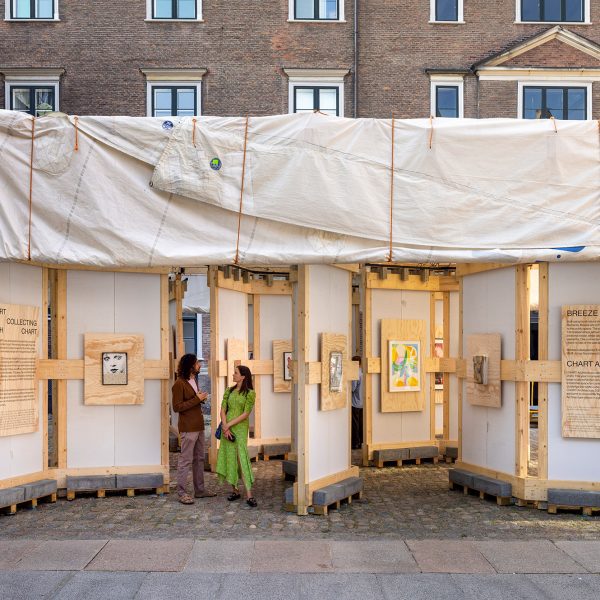Copenhagen’s Chart Art Fair has built a pop-up gallery designed by architects Emil Dupuis Bernild, Mikkel Harboe Wolff, Jonas Sarantaris and Shwan Soran Ali, marking a major change to its annual architecture programme.
Instead of food and drinks counters, this year the fair commissioned architects to build an outdoor pavilion for exhibiting contemporary artworks.
The winning entrants were young architects Dupuis Bernild, Harboe Wolff, Sarantaris and Ali, whose design is titled Breeze.
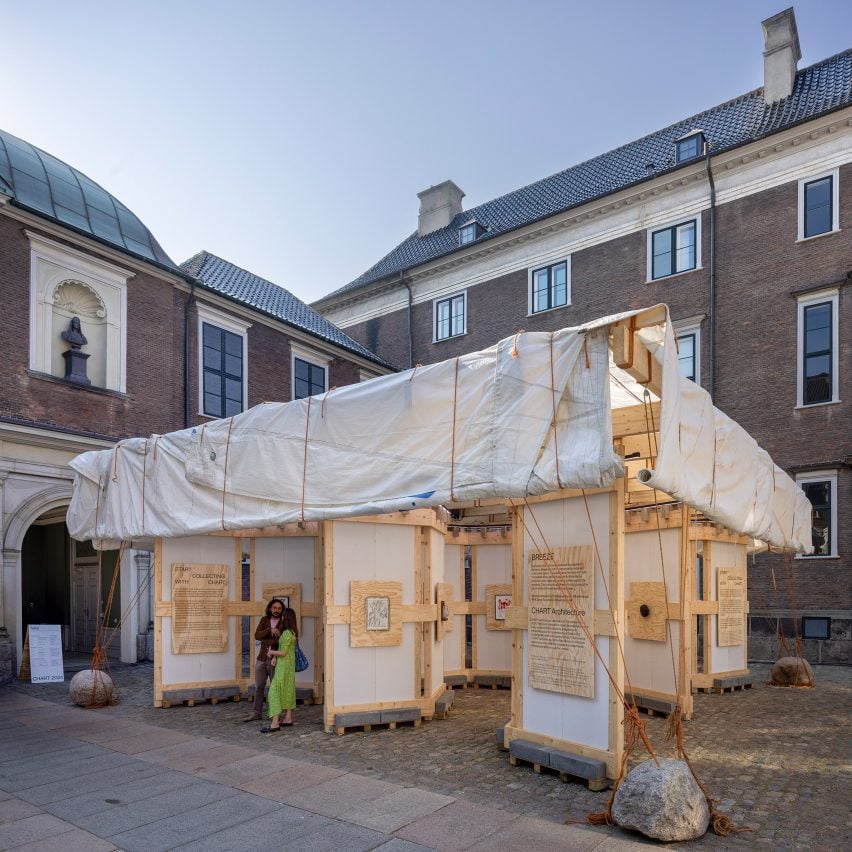
The pavilion was built from standard timber components, with a roof of recycled ship sails held in place with jute rope, another Danish maritime reference.
Its installation coincided with the 10th anniversary of the fair, which took place from 29 August to 1 September.
The move marks a series of changes brought in by Julie Quottrup Silbermann, who took over as director of Chart Art Fair in 2022.
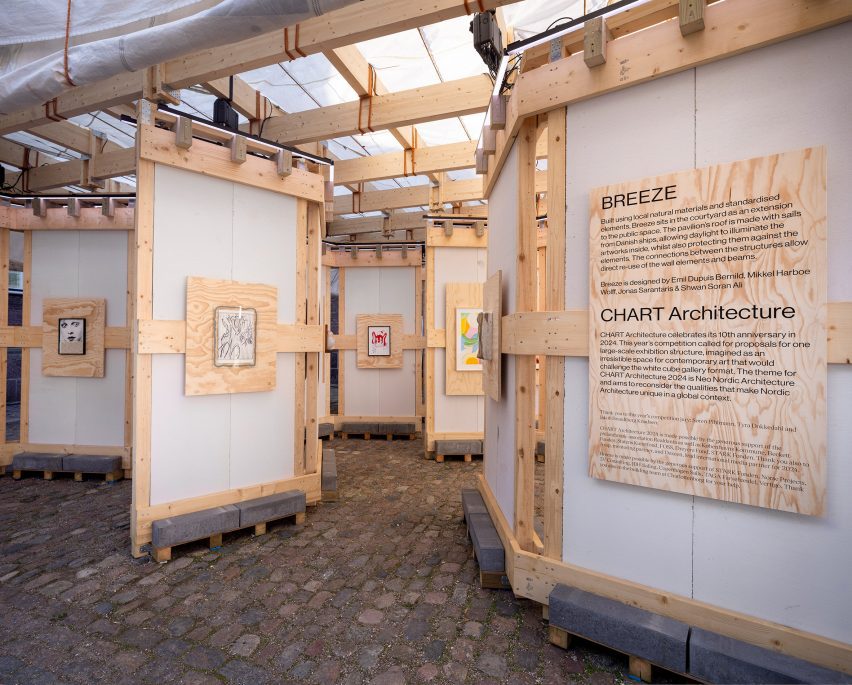
“When I started, I wanted to look at the format with new eyes,” said Quottrup Silbermann.
“We were looking for architects to challenge the traditional gallery format,” she told Dezeen. “I thought it could be an interesting way of showing art in another way.”
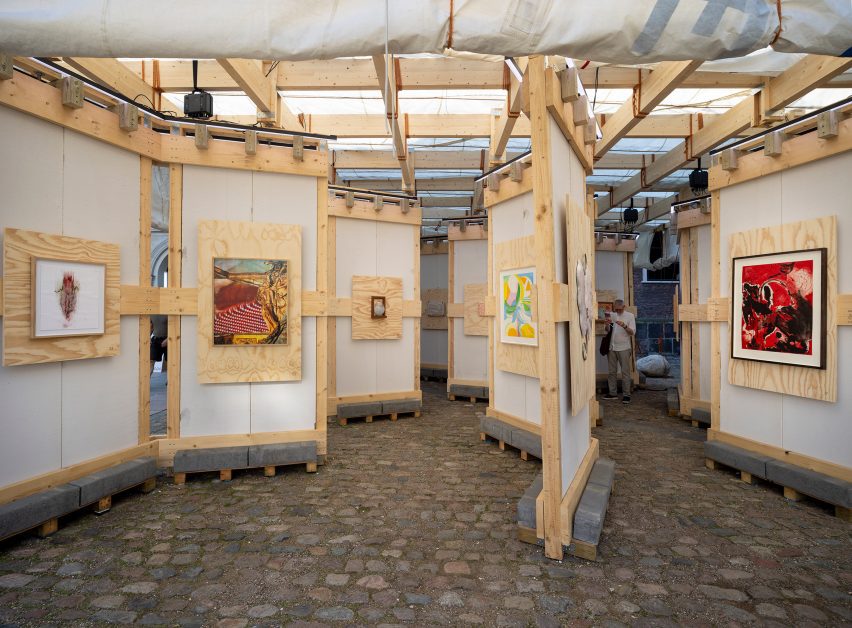
The pavilion hosted Start Collecting with Chart. This is a new exhibition format featuring only pieces priced under 20,000 DKK (£2,257), making them more affordable than typical artworks.
Unlike the rest of the Chart Art Fair, this show was free and open to the public. It featured contributions from all of the different galleries exhibiting with Chart, with the theme New Voices in the Nordics.
“For the past nine years architecture has been a backdrop, with these bars and restaurants making the courtyards more vibrant and aesthetic,” said Quottrup Silbermann.
“I felt that a collaboration between artists and architects could be more interesting.”
The Breeze design was selected by a judging panel made up of architect Søren Pihlmann, architect and journalist Tyra Dokkedahl, and Jakob Brandtberg Knudsen, dean of architecture at the Royal Danish Academy.
It is the first major commission for the four architects, who all graduated from the Royal Danish Academy in 2023.
The pavilion is designed for disassembly, but also to respond to the concept of “new Nordic”.
New Nordic can mean a lot of things, but we saw it as using locally source materials and working with an honest construction where nothing is hidden,” Ali told Dezeen.
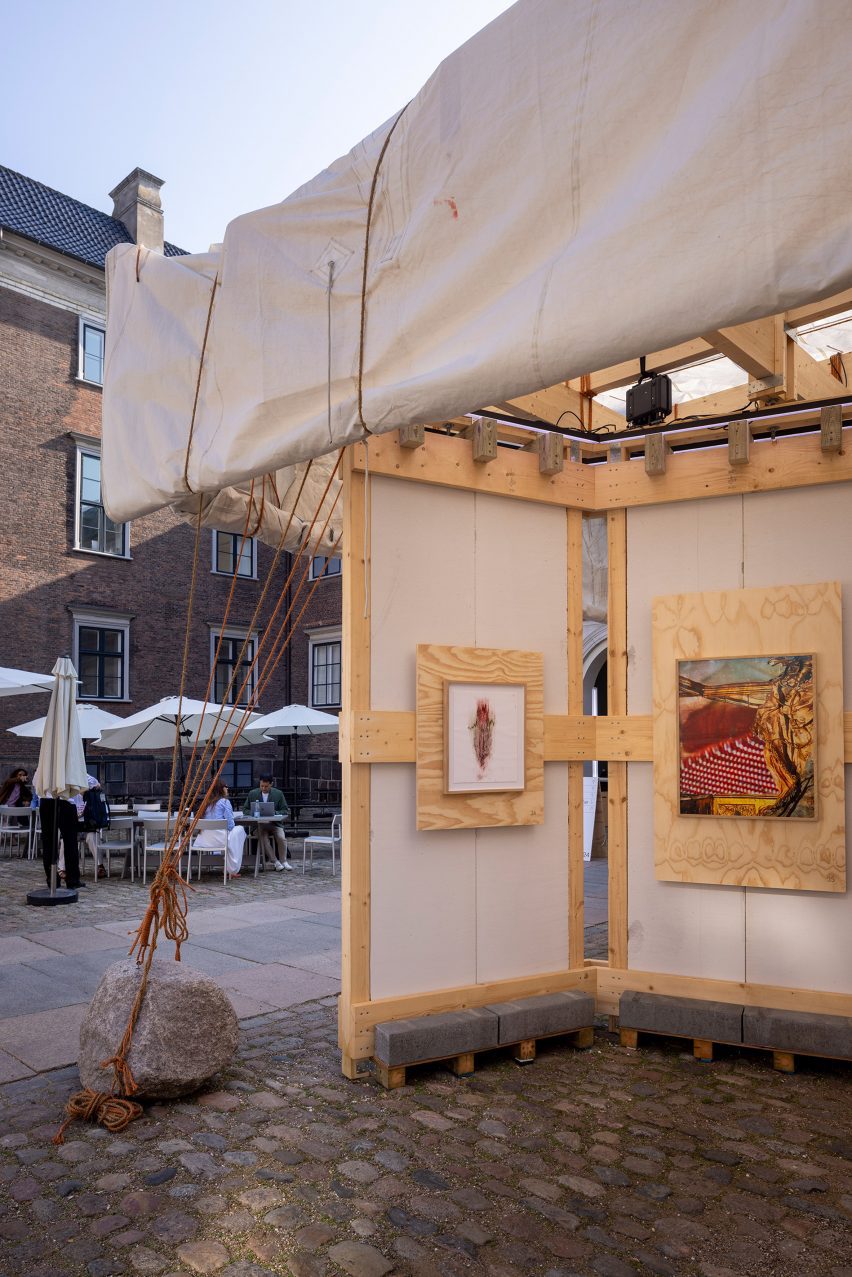
Artworks were displayed on a series of boards, angled in different directions to create an irregular layout for the pavilion’s interior.
A timber lattice provided support for the sail roof. Rope connected these elements, with the ends weighted down by rocks.
“If it’s windy, the whole space becomes very dynamic,” said Ali.
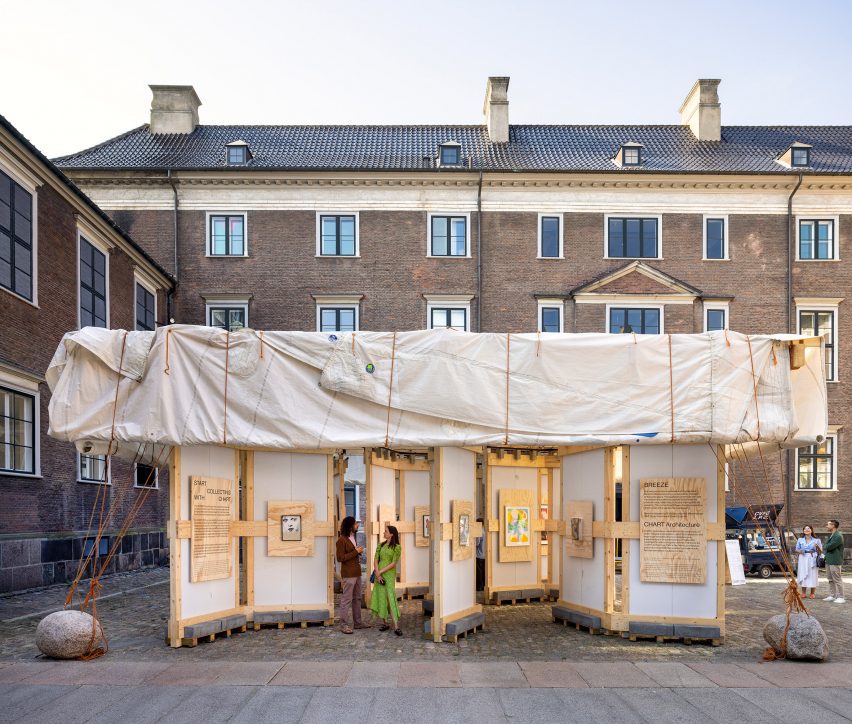
Previous Chart pavilions have included works such as BIG’s “bubble-like cloud pavilion” and Space10’s Algae Dome. Most are reused or recycled after the fair is over.
The plan is to do the same with Breeze. “We are really trying to see if it could have an afterlife, because that’s important for us,” said Quottrup Silbermann.
The director is yet to confirm whether this new format will be repeated for future Chart Art Fairs.
“We haven’t fully decided yet, but I really like having one big pavilion rather than five smaller ones,” she added. “Let’s see how the courtyard will look next year.”
Chart Art Fair 2024 took place from 29 August to 1 September in Copenhagen, Denmark. See Dezeen Events Guide for an up-to-date list of architecture and design events taking place around the world.

